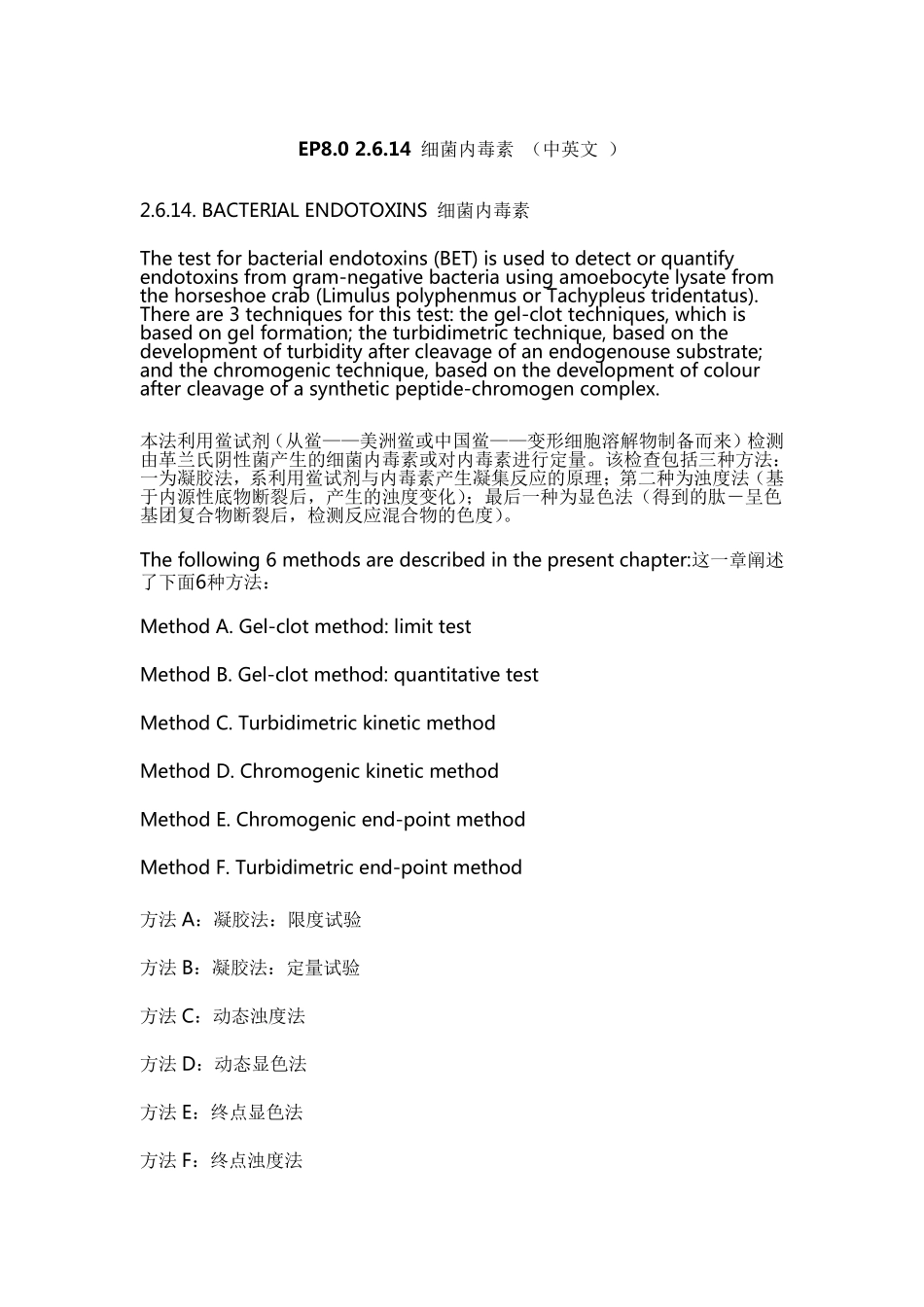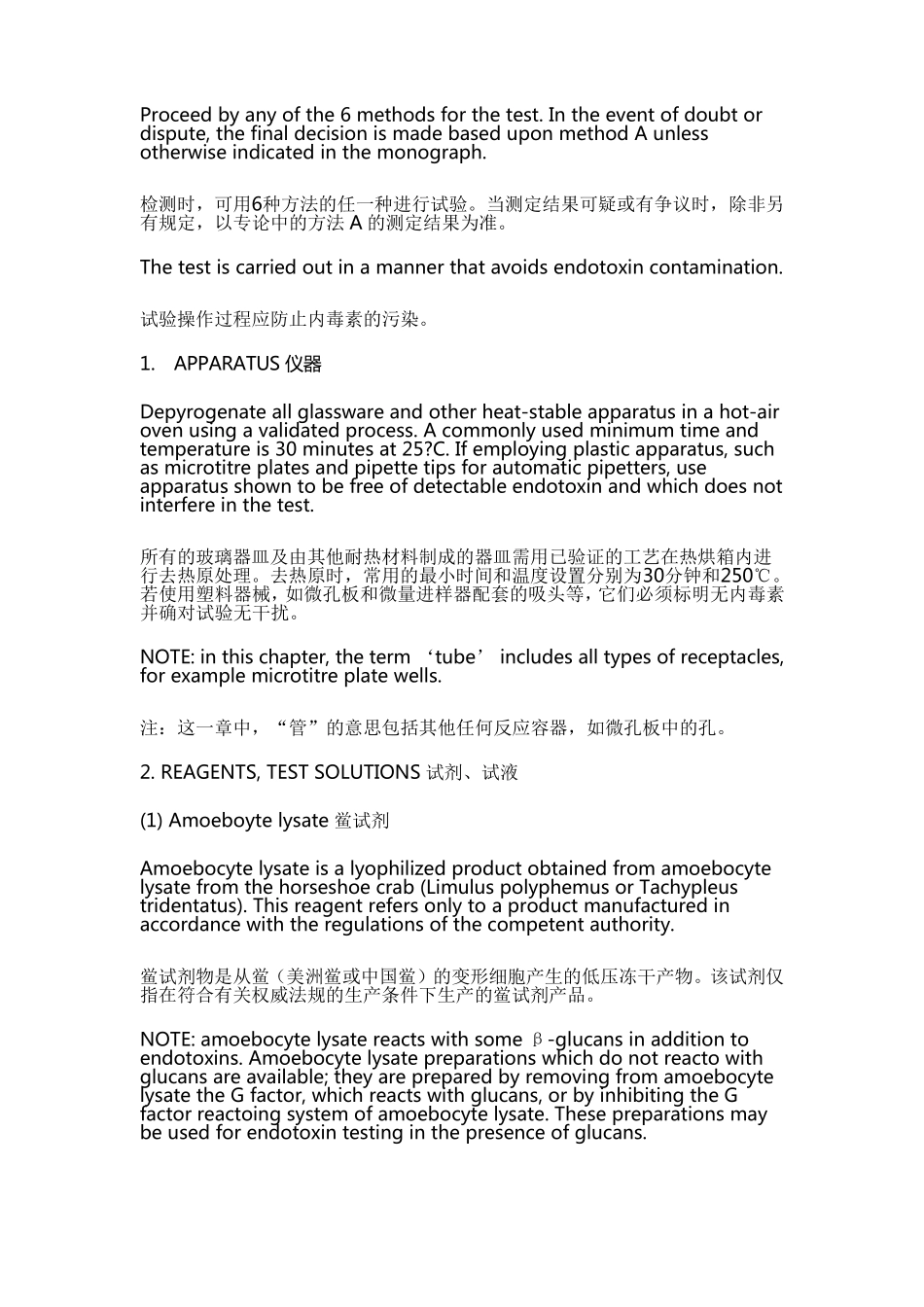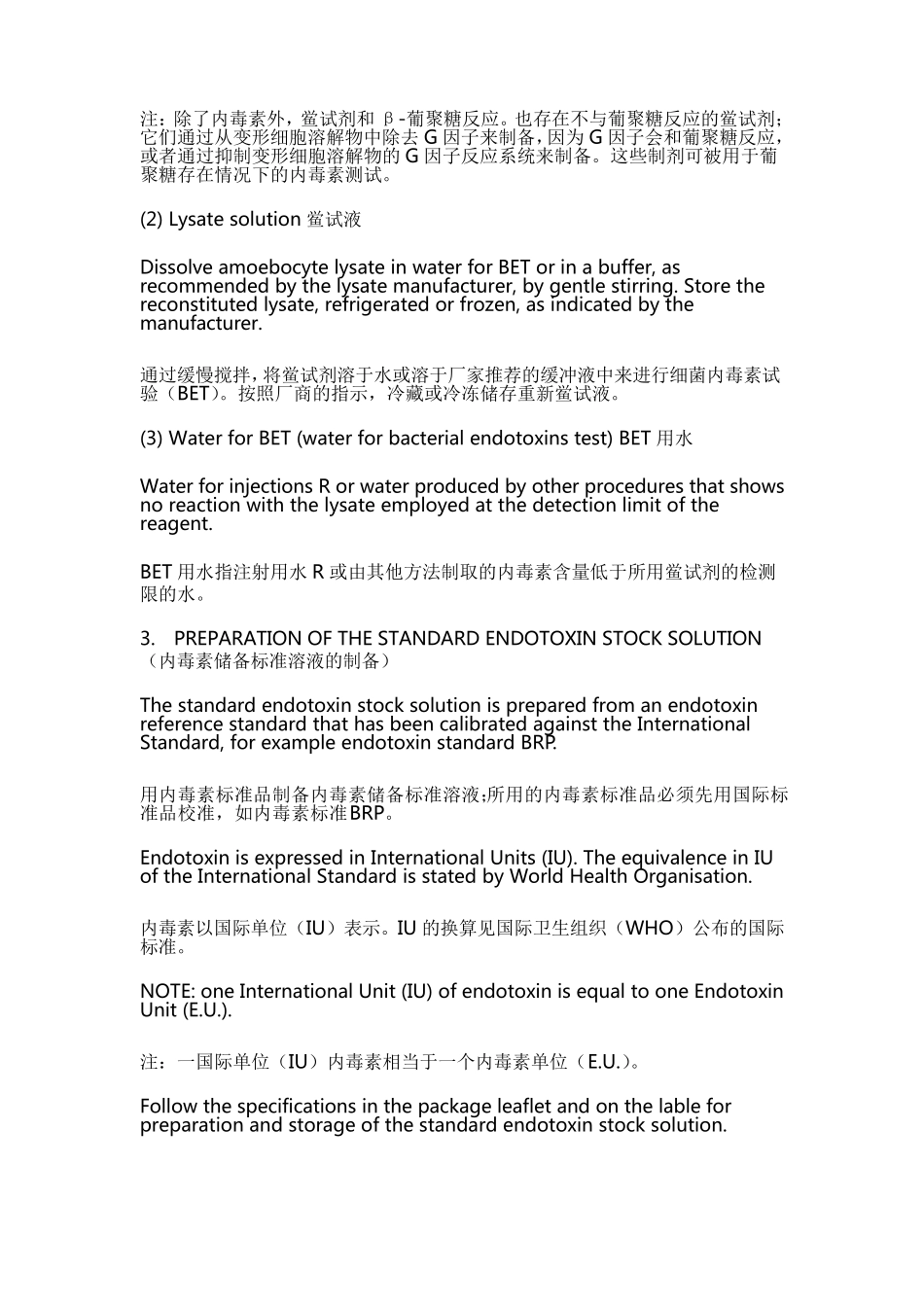EP8.0 2.6.14 细菌内毒素 (中英文 ) 2.6.14. BACTERIAL ENDOTOXINS 细菌内毒素 The test for bacterial endotoxins (BET) is used to detect or quantify endotoxins from gram-negative bacteria using amoebocyte lysate from the horseshoe crab (Limulus polyphenmus or Tachypleus tridentatus). There are 3 techniques for this test: the gel-clot techniques, which is based on gel formation; the turbidimetric technique, based on the development of turbidity after cleavage of an endogenouse substrate; and the chromogenic technique, based on the development of colour after cleavage of a synthetic peptide-chromogen complex. 本法利用鲎试剂(从鲎——美洲鲎或中国鲎——变形细胞溶解物制备而来)检测由革兰氏阴性菌产生的细菌内毒素或对内毒素进行定量。该检查包括三种方法:一为凝胶法,系利用鲎试剂与内毒素产生凝集反应的原理;第二种为浊度法(基于内源性底物断裂后,产生的浊度变化);最后一种为显色法(得到的肽-呈色基团复合物断裂后,检测反应混合物的色度)。 The following 6 methods are described in the present chapter:这一章阐述了下面6种方法: Method A. Gel-clot method: limit test Method B. Gel-clot method: quantitative test Method C. Turbidimetric kinetic method Method D. Chromogenic kinetic method Method E. Chromogenic end-point method Method F. Turbidimetric end-point method 方法A:凝胶法:限度试验 方法B:凝胶法:定量试验 方法C:动态浊度法 方法D:动态显色法 方法E:终点显色法 方法F:终点浊度法 Proceed by any of the 6 methods for the test. In the event of doubt or dispute, the final decision is made based upon method A unless otherwise indicated in the monograph. 检测时,可用6种方法的任一种进行试验。当测定结果可疑或有争议时,除非另有规定,以专论中的方法 A 的测定结果为准。 The test is carried out in a manner that avoids endotoxin contamination. 试验操作过程应防止内毒素的污染。 1. APPARATUS 仪器 Depyrogenate all glass...


